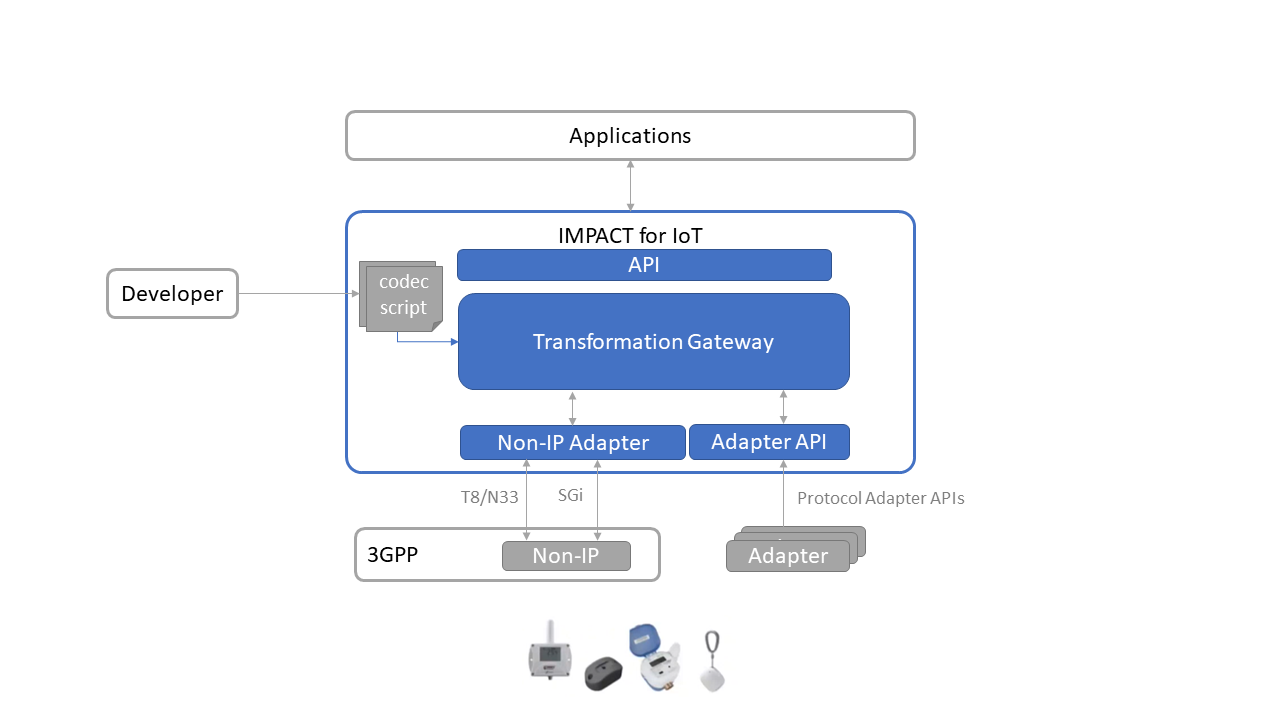Payload data mapping for Legacy Devices
IMPACT IoT provides a Transformation Gateway which is used to map legacy devices into the IMPACT IoT data format.
Transformation Gateway is responsible for data transformation specific to a device when connected using Non-IP and protocol adapted devices. It handles the downlink message from IMPACT IoT and invokes the script to encode the message as per the protocol understood by the device. Similarly, it receives the uplink message from the device and then invokes a script to decode the message into the format used by IMPACT IoT.

For a new device, developers can develop the codec script and provision the script in IMPACT IoT using the UI. After the device is added with the corresponding Manufacturer and Model, the transformation gateway selects the appropriate script to perform the payload transformation.
A script is associated with a Manufacturer and Model
for uplink and downlink.
Reference: This chapter takes bmeter manuals as the reference to explain the codec scripts. For a list of bmeters command index, see page 6 of https://www.bmeters.com/wp-content/uploads/2020/06/Manual_LORA_PULSE_1.1.pdf.
- For IoT devices, IMPACT IoT can use
Manufactureras Generic andModelas Sensor. If a newmakeandmodelare used, then new interoperability content must be generated and uploaded as a reference for Generic and Sensor for that device, with all the primitive support. - In case of downlink operation, the
impact.devicefanoutprimitive command must be used from the IMPACT IoT. - As a prerequisite, the device has to be registered successfully.
- The
write,execute, andreadoperations will be queued on the transformation gateway. For Non-IP devices, it will be processed and sent to the client after receiving the uplink notification event from the client. The commands are cleared one after the other from the database for every Notify event received from the client.